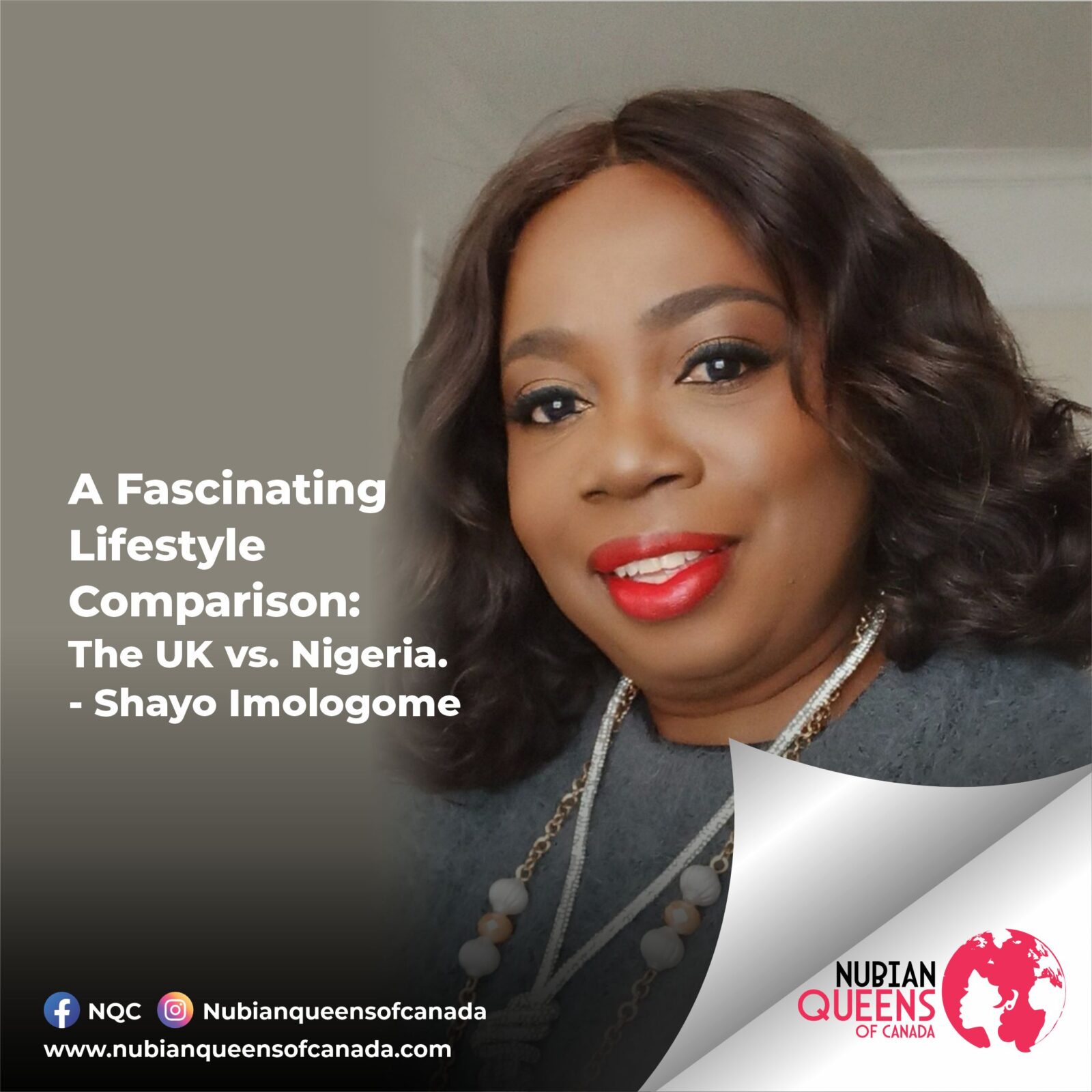Shayo Imologome was born in the UK but spent a better part of her life in Nigeria. She eventually relocated to the UK in 2021. Her eventual relocation brought back nostalgic memories from her childhood days of brands she was used to as a child and how these brands have transcended the challenges of time and progeny to emerge even stronger and more relevant in today’s market. Shayo also speaks comparatively about the culture and lifestyle in both the UK and Nigeria. She tells her full story here:
While I regularly came on vacation with my children to the UK, relocating to the UK was a whole new experience for me. The cold winter was my first culture shock, as I didn’t like the cold. However, I have learnt to maximize the comfortable warmth of summer by sitting out in my terrance and soaking up the sun’s golden rays. Also, having worked for about thirty years in Nigeria, I can say that the corporate world in Nigeria compares well to others internationally. There is a tendency for people to downplay the progressiveness of the Nigerian work culture and practices, especially when compared to the UK. Still, the truth is that there is not much difference between the workplace culture in the UK and Nigeria. The private sector practices in both countries compare well, and the same global best practices framework is applied to the UK and Nigerian corporate space. As Nigerians, we should give ourselves more credit because the private sector in Nigeria is very progressive.
Another thing I have observed is some migrants in the UK tend to play the racism victim card and get boxed into the misconception that they are limited due to the interplay of racial factors. But when these same discriminations are perpetuated in Nigeria or within their local communities, it loses its racist relevance. The fact remains that people are the same everywhere, some people may not like you for whatever reason, and this is universal, not just within a racial context. You win and lose some opportunities; everything is not about race. Could it be that you got passed over for the promotion because you weren’t good enough and there was a better candidate? Some people are too quick to play the racist victim card, and they need to come out of that victim mentality and move on.
In the UK, the corporate space is more niche-oriented. For example, an accountant in Nigeria is not limited; they can work with a bank, with a non-profit or with a privately owned business. In the UK, you are encouraged to maintain your career trajectory; an accountant with a non-profit is encouraged to continue with the non-profit sector and may find it challenging to get a job in a bank as she may not have the requisite work experience.
Another pivotal experience in the UK was understanding and navigating the tax system. This brought home a profound understanding of the meaning of the matrix and escaping the rat race in the book “Rich Dad, Poor Dad.” Unlike in the UK, I realized that getting rich by earning a salary in Nigeria is possible through financial discipline. Nigeria’s corporate space has many perks like housing allowance, clothing allowance, benefits, a thirteenth-month salary, end-of-year bonuses, an official car, and a driver. However, these are unavailable for most organizations in the UK because it’s just your salary you are paid, and from this, you pay your rent and utilities and take care of your needs, leaving you with little or nothing at the end of the month. So it is here that the actual rat race exists because if you default on a major payment, it can lead to debt, and it is very easy for people here to find themselves in debt.
Furthermore, the high taxes take up a large portion of the pay cheque. It is also advisable to pay your taxes when they are due because there are penalties for evasion and delay in tax payments. For business owners, ensuring that your books are up-to-date and your taxes are filed on time is especially important to avoid problems with the HMRC. It is also better to get professional help with taxes, and you need to be transparent and declare your information truthfully. Trying to beat the system is futile; it won’t work because they will wait for you and penalize you in the future. Another thing the UK is strong on is putting systems and processes in place to ensure consistent and seamless service delivery. This is one aspect that the UK system has an advantage over the Nigerian system.
Again, adapting to a new culture doesn’t mean losing your identity. I observed the stark difference in the dress culture between the UK and Nigeria. In Nigeria, we take pride in dressing well and smartly, while in the UK, comfort often precedes style and popular fashion. However, it’s possible to maintain your sense of style and fashion while blending in with the local culture. The key is to look smart, fashionable, and chic, while also being comfortable in your own skin.
Looking back, I would have improved on analyzing my expenses for insight and planning. I leave reviewing my accounts for insights and spending patterns till the end of the year, but going forward, I review these every month and advise the same for everyone. Again, as a business owner, it might be a good idea to have your financial year run with the tax year for ease of tax computation. As a business owner, if you earn above a certain amount, you will need to have an assessment done to know what to pay in taxes. The tax year, which starts on 6 th April till 5th April of the following year, however you must complete your tax returns and pay any tax due by 31 January of the following year, so it is a good idea to submit your tax returns as early as possible to leverage this window length to make periodic and convenient payments of any taxes owed.
My advice to women and people looking to relocate to the UK is not to relocate based on the experience they have had coming to the UK on vacations. Ask yourselves why you are relocating and weigh your options carefully before doing so. Analyze your current situation: do you have a very good job? Are you well paid? What is your current housing status? Do your research; what kinds of jobs are you likely to get here, and how does it compare to what you earn currently? This is important because many people have a better quality of life in Nigeria than they will in the UK, and also because you are starting all over again when you come here. The grass is not necessarily greener on this side, take away the exchange rate, and it does not look as promising anymore.
Another advice is, be disciplined with time, as the Nigerian time does not apply here. We also shouldn’t play the victim racist card; the truth is that if you are good at what you do, no one can take that expertise away from you, and whatever the colour of your skin, they will seek you out as a problem solver. Just be the best at whatever you are doing. Another consideration is having a bulk sum of money before coming, which will be very helpful, and also having relatives or friends to welcome you when you arrive.
In summary, you should never be intimidated by anyone; as Nigerians, we are very confident in how we speak, which could be misconstrued as aggression or anger issues. Don’t allow anyone to put you in a box. We are confident, proud, and very bold. Here in the UK, the tendency is to speak softly and near apologetically, even while upset. Their voice tones are low; though this is the norm here, we should not blend in thoughtlessly. Where we need to project our voice, we should do so unapologetically. We should be polite and respectful but also project our voice with confidence.
Let me end with this, in everything you do – do it for yourself or your family. Don’t get carried away with other people’s stories or what you see on social media. Everyone’s journey is unique, so travel your own road with joy and make the most of the ride!
Shayo tells her story from London, UK.















Leave a Reply